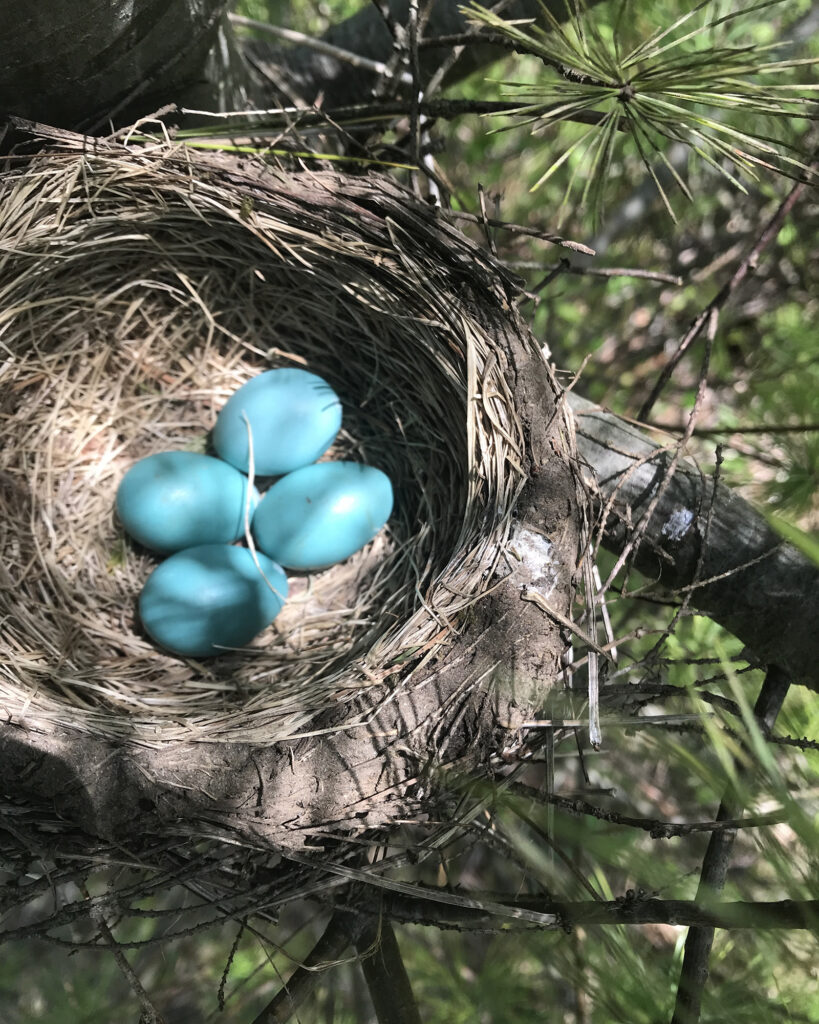The CMP Review — Week of May 6
May 6, 2024
We recently had the opportunity at a blacksmith festival to try our hand at forging bangle bracelets. We enjoy creating with our hands and it was fun to experience a new craft we haven’t had access to previously. My boys even joked about building a forge after completing their bangles, one of which was a gift for their little sister. We love getting hands-on with new crafts, even if building a forge isn’t on our to-do list just yet.
@tessakeath
May 7, 2024

In Ourselves, Charlotte Mason refers to imagination as “My Lord Chief Explorer.” As with all the characters in Mansoul, imagination is in the child from birth. But whether it thrives and brings life or decays and brings death depends on how it is managed by the government of Mansoul.
Arthur Burrell shared Miss Mason’s belief that imagination is the inherent possession of all who are born persons. He too saw that imagination could thrive or decay. As an experienced teacher and celebrated author, he was keen to urgent parents to preserve the wonderful imaginative power in children.
At the 6th annual PNEU Conference in 1902, Burrell shared his advice. His paper was at once informative, humorous, challenging, and poignant. It is an unforgettable read. But with Burrell’s noted accomplishments in recitation and storytelling, it must have been even more unforgettable to hear.
Today we have recreated the historical moment. Our talented audio performer Greg Rolling brings us the words of Arthur Burrell with conviction and feeling. Listen here and let Burrell and Rolling unfold for you the task before parents and teachers: “Difficult I know it is … impossible it is not.”
@artmiddlekauff
May 8, 2024

Have you tried what Charlotte Mason calls the gentle art of bird stalking?
Children are instructed to be quiet as mice, moving softly and slowly, creeping on hands and knees if need be, until an unknown song is tracked to its source. Once the songster is found, silence is maintained as long as possible in order to observe the bird’s habits. Binoculars help catch sight of birds harder to see in the dense foliage of summer.
@rbaburina
May 9, 2024
In her volume School Education, Charlotte Mason draws a helpful distinction between “interests” and “relations.” “Interests may be casual, unworthy, and passing,” she notes. “Everyone, even the most ignorant, has interests of a sort; while to make valid any one relation, implies that knowledge has begun in, at any rate, that one direction.”
And so education is the science of relations, not the science of interests. And “he who has intelligent relations with life,” insists Charlotte Mason, “will produce good work.” And so “the object of education is to put a child in living touch with as much as may be of the life of Nature and of thought.”
In our homeschool we began the study of architecture with Architecture Shown to the Children, by Gladys Wynne. The goal was neither to scratch a passing itch of curiosity nor to achieve a mastery that could pass a certification exam. The goal was to form a relation that would last for life.
When the door opened unexpectedly for a trip to Europe, the seeds we had planted with living books on architecture and narrations consistently performed bore fruit in rich immersive experiences. With a demanding itinerary of 4 cities in 6 days, we saw firsthand the architecture of the Basilica Cateriniana San Domenico, the Duomo di Siena, the Cathedral of Santa Maria del Fiore, Santa Maria Novella, St. Peter’s Basilica, Santa Maria Sopra Minerva, Santa Maria del Mar, the Cathedral of Barcelona, and the Temple of the Sacred Heart of Jesus.
What we will never forget, however, is the church that we simply could not visualize from the pictures we saw in a book. The astonishing design of Antoni Gaudí that was the beacon of our trip. Here surely is one of those “whose souls become so filled with the Beauty they gather through eye and ear that they produce for us new forms of Beauty—in picture, statue, glorious cathedral, in delicate ornament, in fugue, sonata, simple melody. When we think for a moment, how we must admire the goodness of God in placing us in a world so exceedingly full of Beauty.”
@artmiddlekauff
May 10, 2024

“Thinking comes by Practice. … Thinking, like writing or skating, comes by practice. The child who never has thought, never does think, and probably never will think; for are there not people enough who go through the world without any deliberate exercise of their own wits? The child must think, get at the reason-why of things for himself, every day of his life, and more each day than the day before. Children and parents both are given to invert this educational process. The child asks ‘Why?’ and the parent answers, rather proud of this evidence of thought in his child. There is some slight show of speculation even in wondering ‘Why?’ but it is the slightest and most superficial effort the thinking brain produces. Let the parent ask ‘Why?’ and the child produce the answer, if he can. After he has turned the matter over and over in his mind, there is no harm in telling him—and he will remember it—the reason why. Every walk should offer some knotty problem for the children to think out—‘Why does that leaf float on the water, and this pebble sink?’ and so on.” (Vol I, pp 153–154)
@antonella.f.greco
May 11, 2024

Happy Mother’s Day (tomorrow)!
As a reminder to never stop growing or forget that you are yourself, the original Parents’ Review article “Mother Culture” is available for your happy reading.
@rbaburina
May 12, 2024

The Gospels of Matthew and Luke describe a man who says, “Lord, I will follow You wherever You go.” To this profession of faith, our Lord responds, “Foxes have holes and birds of the air have nests, but the Son of Man has nowhere to lay His head.”
How does this man respond? Leon Morris notes that “The scribe’s reaction is not given, but certainly the cost of discipleship is brought clearly before him.”
Morris goes on to explain that “John uses the verb for lay when he is speaking of Jesus bowing his head on the cross (John 19:30); there the Master found the resting place that he did not have throughout his ministry.”
The cost of discipleship is brought before us too. How will we respond? Consider with Charlotte Mason in her poem on this verses here.
@artmiddlekauff